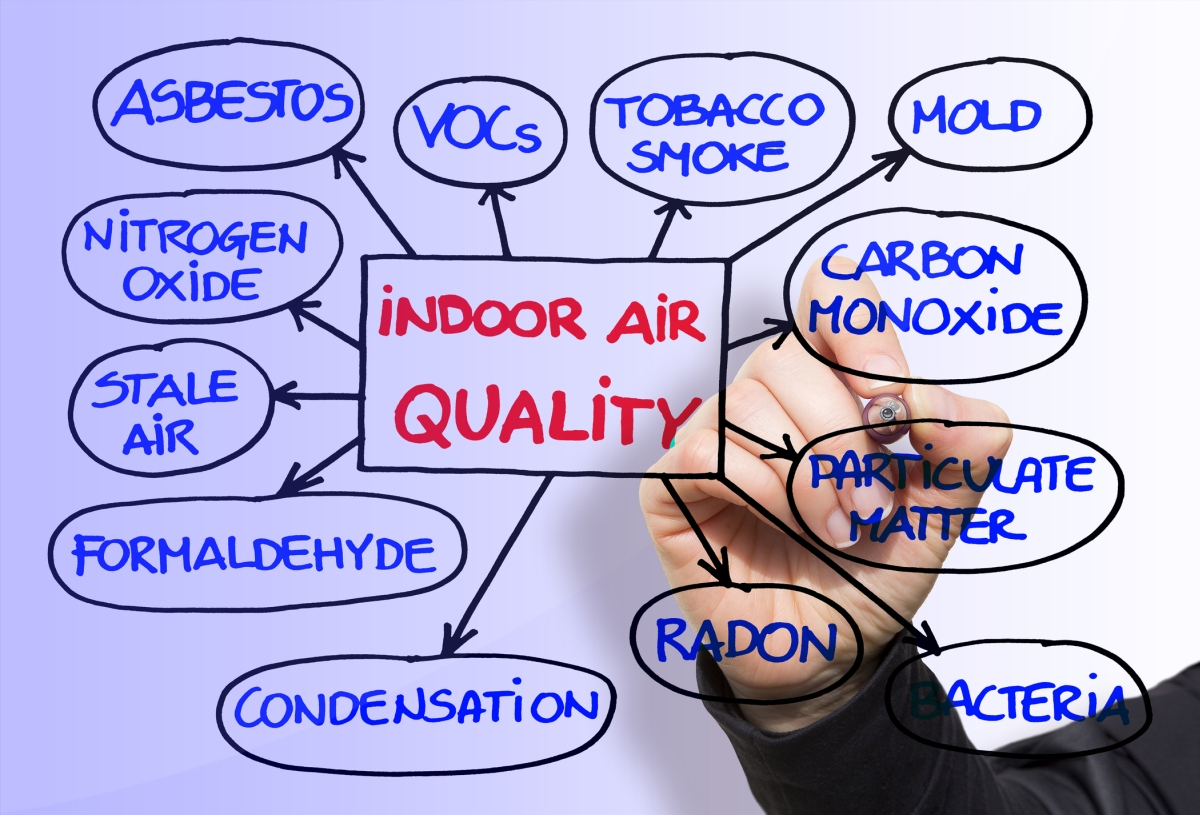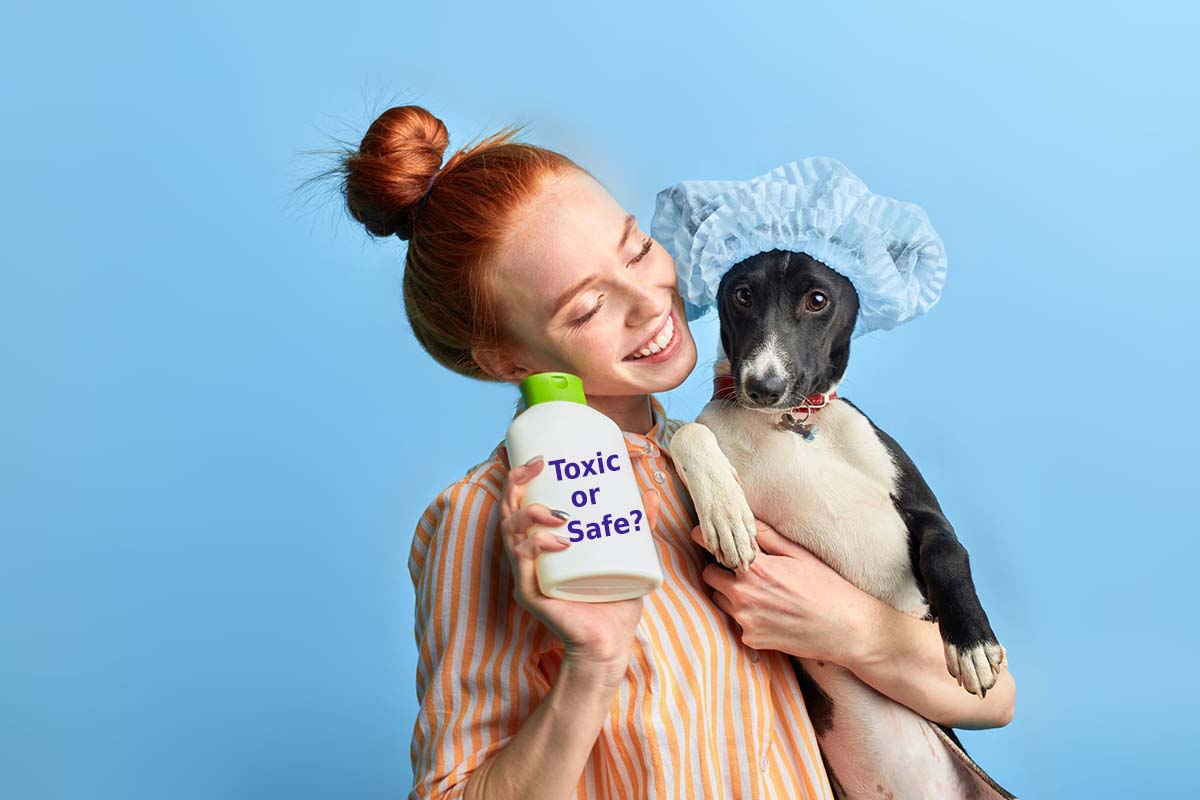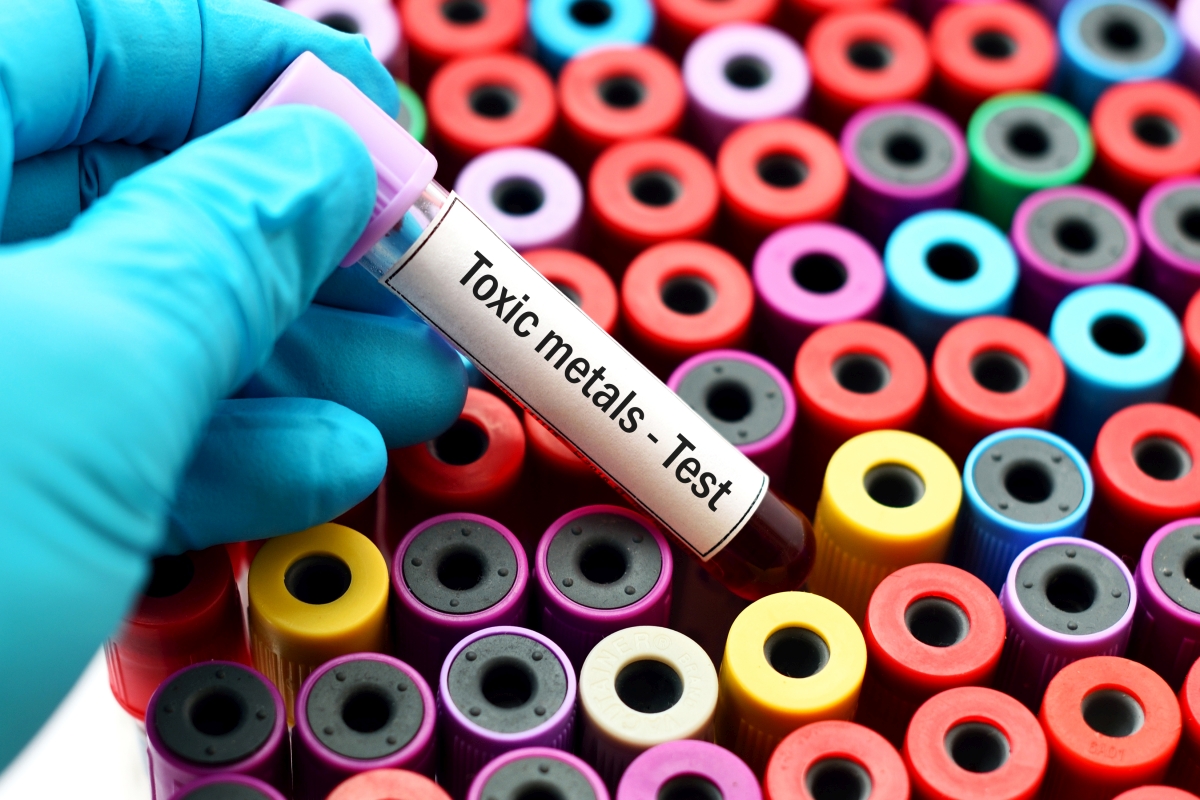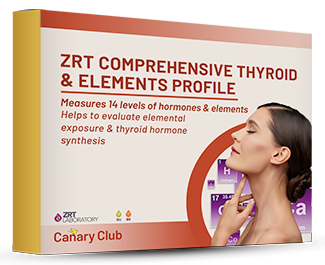Can My Pet’s Health Be a Forewarning of Hormone Disrupters in My Home?
I watched my dog's cough worsen over several months. The vet couldn't find a reason as to what could be causing such a condition. Scooter's favorite place was in his bed at my feet while I worked at the computer. I had purchased the pet bed only a few months before, and, one day, as he went to bed, the cause finally became obvious. His coughing would spike when he was sitting in his bed. He was being exposed to higher levels of toxic chemicals coming from the materials in the bed.
Like a canary in the coal mine, my best friend was telling me there was danger in my home.
Was I exposing my family and friends to chemicals known to be irritating and harmful? The question plagued me so much that I began researching some of the toxins known to cause health problems. I was shocked to learn how many of these toxins surround us.
A form of a toxin called "hormone-disrupting chemicals" disrupts the functioning of different glands in our body — like the thyroid or adrenal gland — that produce hormones.
Synthetic chemicals can mimic hormones and interfere with or disrupt the delicate balance of hormone messaging, and we encounter them daily. We're especially vulnerable to them during phases of rapid development, such as during pregnancy, and from childhood into young adulthood.
Some of us are more sensitive than others. Early-life exposure to some of these may cause life-long diseases such as cancer, diabetes, heart conditions, bone loss, and obesity.
Avoiding Hormone Disrupters to Lengthen Life Expectancy
 We can be exposed to toxic elements any time and anywhere. Over 800 hormone-disrupting chemicals have been identified. These can be in the water we drink, in the soil, or irrigation water used to grow the foods we eat, through environmental pollution of the air we breathe, and through smoking. (1)
We can be exposed to toxic elements any time and anywhere. Over 800 hormone-disrupting chemicals have been identified. These can be in the water we drink, in the soil, or irrigation water used to grow the foods we eat, through environmental pollution of the air we breathe, and through smoking. (1)
We may be exposed to hormone-disrupting chemicals when we encounter:
- Airbags.
- Cigarette smoke.
- Cosmetics.
- Food.
- Detergents.
- Packaging.
- Plastic cups and plates.
- Toys.
- Foods microwaved in plastic.
- Drinking bottled water from plastic containers.
Toxic elements end up in our bodies — from where we live, from our diet, from the air we breathe, and from our lifestyle choices. They accumulate over time.
The New York Times says, "The overwhelming evidence is that if you live in states, cities or neighborhoods with high pollution levels, your life will be shortened by anywhere between four to 10 years."(2) Hormone-disrupting chemicals are in our bodies and they accumulate over time through consistent exposure.
Adverse health conditions can target all areas of the body, yet often get written off as something else. For this reason, we offer hormone tests, combined with essential elements & heavy metals testing, to help you advocate for your own health. These tests are ideal whenever you may have lingering persistent health conditions, or have known exposure to toxic elements.
Which Essential Elements and Heavy Metals Affect Thyroid Hormones?
Iodine and selenium are essential elements. We obtain these essential elements from our diets to keep us healthy, though too much can be harmful. For this reason, we need to test to ensure they are in the healthy range.
Lithium and bromine are not currently classified as essential elements but research has shown they are needed in small amounts, while high levels are toxic.
Arsenic, mercury, and cadmium are extremely hazardous to health. These are ranked in the top "substance priority list" of toxins in the environment by the Centers for Disease Control (CDC).
Testing Essential Elements & Heavy Metals
 Iodine
Iodine
An essential component of the thyroid hormones T4 and T3. Iodine is commonly found in seafood, iodized salt, and dairy products
Getting enough iodine is important for everyone, especially infants and women who are pregnant. (3)
Selenium
An essential trace mineral that helps improve cognition, immune system function, and fertility. Selenium is a key nutrient in maintaining thyroid hormone metabolism and protecting the body from oxidative damage and infection.
Foods such as Brazil nuts, seafood, eggs, and grains are significant selenium sources. Excess selenium intake can be toxic, while inadequate selenium affects thyroid function. Selenium has been shown to counteract the toxicity of heavy metals such as cadmium, inorganic mercury, and thallium. (4)
Bromine
Bromine is a common component of flameproofing agents, fumigants, medications, food products, and pool/spa sanitizers. High environmental exposure can lead to excess accumulation. If iodine status is low, bromine can interfere with thyroid hormone synthesis.
Lithium
Historically used to treat mood disorders, Lithium improves the body's ability to synthesize serotonin. This simply means that the body's levels of serotonin increase in response to lithium, which has the effect of improving mood and reducing feelings of anxiousness.
Arsenic
Arsenic is a natural component of the earth’s crust and is widely distributed throughout the environment in the air, water, and land. It is highly toxic in its inorganic form.
People are exposed to elevated levels of inorganic arsenic through drinking contaminated water, using contaminated water in food preparation and irrigation of food crops, industrial processes, eating contaminated food, and smoking tobacco. Long-term exposure to inorganic arsenic, mainly through drinking water and food, can lead to chronic arsenic poisoning. Skin lesions and skin cancer are the most characteristic effects.
Mercury
Mercury is a highly toxic heavy metal that can build up in body tissues including the brain. Exposure to mercury is through dental amalgams, seafood, and some vaccinations. Mercury toxicity can lead to thyroid inflammation, hypothyroidism, and depression.
Cadmium
Cadmium is rated the 4th most toxic heavy metal after arsenic, lead, and mercury on the priority list of hazardous substances issued by the CDC. Cadmium and its compounds are highly toxic and exposure to this metal is known to cause cancer and targets the body's cardiovascular, renal, gastrointestinal, neurological, reproductive, and respiratory systems. (5).
Creatinine
Creatinine is not an essential element and is not heavy metal. Creatinine is a byproduct of a chemical compound called creatine, which helps muscles get the energy that they need. As a waste product, creatinine is filtered out of the blood by the kidneys and removed from the body in urine. A creatinine test measures the amount of this chemical in either the blood or urine. Elevated creatinine level signifies impaired kidney function or kidney disease. As the kidneys become impaired for any reason, the creatinine level in the blood will rise due to poor clearance of creatinine by the kidneys. Abnormally high levels of creatinine thus warn of possible malfunction or failure of the kidneys.
Iodine, bromine, selenium, arsenic, mercury, and cadmium results are therefore expressed in μg/g creatinine to allow for urine dilution.
Why Are Tests Done in Urine or Blood Spot?
Any recent exposure to arsenic in the past several days can be measured effectively in urine, while it can be found in blood only immediately after exposure.
Iodine is best tested in urine. This gives the best information about whether you have enough iodine in your daily diet.
When mercury, cadmium, and selenium are tested in urine, urinary cadmium reflects whole-body exposure over a long period of time. For mercury and selenium, inorganic forms are found in urine.(6)
Your Essential Elements & Heavy Metals Testing Plan
When you know you have had a history of exposure to toxic chemicals—and have persistent health conditions with no apparent cause—it is time to consider testing.
- Step 1: Start by selecting the ZRT Comprehensive Thyroid and Elements Profile, using the guide below.
- Step 2: Take the test to establish the starting baseline of your hormones, essential elements, and heavy metals. Consider developing your plan alongside:
- a licensed health care provider for medical conditions, especially for severe "out of normal range" results
- or a Health Care Consultant for nutrition and supplements that will support your results
- Step 3: Develop a plan based on your lab test results, establishing a one-year or more outlook.
- Be diligent to address the factors you can, such as work stress, poor diet, and lack of exercise.
- Keep logs of your intakes, and daily routines related to your hormone test results.
- Step 4: After 6-12 months of actively working on your plan, take the same test again, or take a smaller panel that tests specific areas of concern to determine your progress.
Our ZRT Comprehensive Thyroid and Elements Profile can help you assess heavy metal and essential elements factors affecting your health. Based on your test results, you may want to consider:
Remove Heavy Metal Toxicity - The elements, arsenic, and mercury in particular, when present at high levels severely deplete iodine and selenium levels.
Your best defense: Test arsenic and mercury levels for exposure. Supplemental selenium (200-400 mcg) can reduce heavy metal damage by binding tightly to mercury - thus removing it from circulation. As anti-oxidant selenium counteracts the bad effects of prolonged heavy metal exposure. If you have dental amalgams which are strongly associated with mercury toxicity, consider having them removed. If you drink well water, have it tested for contamination.
Avoid Xenoestrogens - These environmental toxins disrupt hormone operating systems and stimulate the accumulation of estrogens that block the thyroid.
Your best defense: Look for "hormone-free" food products. Switch to glass or ceramic versus plastic for heating / storing food. Use stainless steel or BPA-free water/baby bottles. Go for "green" household, garden, and personal care products. Eat cruciferous* vegetables (cabbage, brussels sprouts, cauliflower, broccoli, kale) or supplement with the active extract DIM, to rid the body of toxic xeno buildup.
(1) Environmental Working Group (EWG) Toxic Chemicals
(2) The New York Times: The Causes of Shorter Life Expectancies in America
(3) https://ods.od.nih.gov/factsheets/Iodine-Consumer/
(4) https://ods.od.nih.gov/factsheets/Selenium-HealthProfessional/
(5) https://www.osha.gov/cadmium
6) https://www.zrtlab.com/blog/archive/elements-testing-type-matters

 Iodine
Iodine
